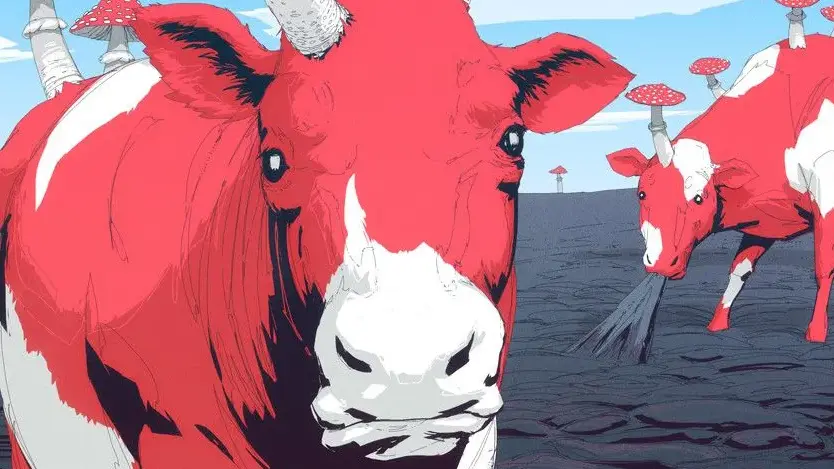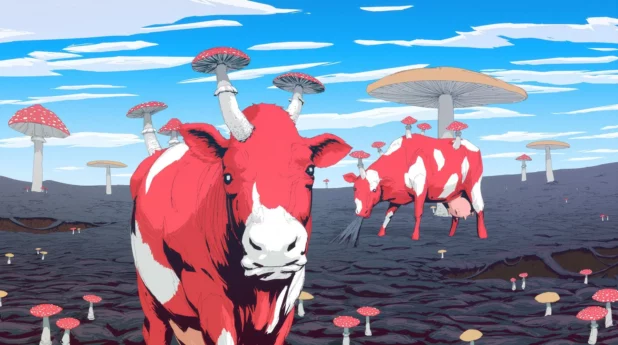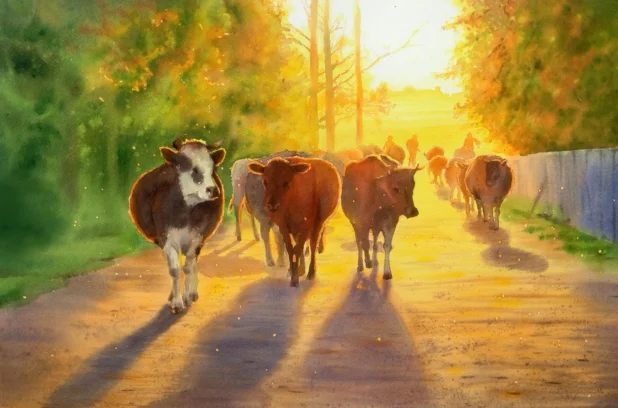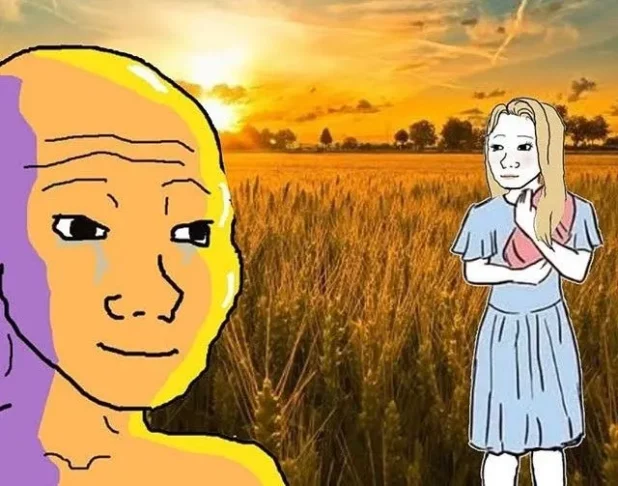FUN FACT: Grass will decompose and produce methane whether a cow eats it or not!! pic.twitter.com/wn38PVMKfq
— Dr Shawn Baker 🥩 (@SBakerMD) June 4, 2023
I don’t usually support genocide… but I do when it saves the environment.
So, let’s start with this cow genocide, and then go from there.
Okay?
When Canadian dairy farmer Ben Loewith’s calves are born next spring, they will be among the first in the world to be bred with a specific environmental goal: burping less methane.
Loewith, a third-generation farmer in Lynden, Ontario, in June started artificially inseminating 107 cows and heifers with the first-to-market bull semen with a low-methane genetic trait.
“Selectively breeding for lower emissions, as long as we’re not sacrificing other traits, seems like an easy win,” Loewith said.
The arrival of commercially available genetics to produce dairy cattle that emit less methane could help reduce one of the biggest sources of the potent greenhouse gas, scientists and cattle industry experts say.
Burps are the top source of methane emissions from cattle. Semex, the genetics company that sold Loewith the semen, said adoption of the low-methane trait could reduce methane emissions from Canada’s dairy herd by 1.5% annually, and up to 20%-30% by 2050.
The company this spring began marketing semen with the methane trait in 80 countries. Early sales include a farm in Britain and dairies in the US and Slovakia, said vice-president Drew Sloan.
If adopted widely, low-methane breeding could have a “profound impact” on cattle emissions globally, said Frank Mitloehner, professor of animal science at University of California Davis, who was not involved in developing the trait.
Some dairy industry officials remain unconvinced about low-methane breeding, saying it could lead to digestion problems.
Canada’s agriculture department said in an email that it has not yet assessed the methane evaluation system underlying the product but that reducing emissions from livestock was “extremely important.”
Cows who have been around 1000’s of years are all of a sudden a great climate change problem.
I hope one day there’s a Nuremberg for these grifters. pic.twitter.com/rFw2JjKrto— Dane (@UltraDane) August 1, 2023
This is the biggest tyre cemetery in the world in Kuwait.
This fire is always burning and can be seen from outerspace but cows are responsible for climate change. pic.twitter.com/J5lP1ldlad
— Histra 1111 (@111Truth777) August 6, 2023
Livestock account for 14.5% of the world’s greenhouse gas emissions. Methane is the second-biggest greenhouse gas after carbon dioxide.
While farmers can feed additives to cattle to reduce methane production, their effects wear off once cattle stop eating them and they are not approved for use in the United States, Mitloehner said.
Daffodils could provide the key to more sustainable livestock farming, according to scientists who say lab tests have proven promising.
Adding an extract from the flowers to livestock feed reduced methane in artificial cow stomachs by 96%.
Find more: https://t.co/8xyWy2cBPY pic.twitter.com/1eeDT2gskr
— Sky News (@SkyNews) July 10, 2023
The low-methane breeding material is the product of a partnership between Semex and Canada’s milk-recording agency Lactanet and based on research by Canadian scientists.
Lactanet in April released the world’s first national genomic methane evaluation, and has produced results from Holstein cows and heifers on 6,000 farms, representing nearly 60% of Canada’s dairy farms.
The registry drew on seven years of research by University of Guelph and University of Alberta scientists to measure the methane of dairy cattle.
The scientists captured the exhalations of cattle to measure them for methane, and then compared the data against genetic information and milk samples.
“After ten years, methane is broken down in a process called hydroxyl oxidation into CO2, entering a carbon cycle which sees the gas absorbed by plants, converted into cellulose, and eaten by livestock.”#Farm24
— James Melville (@JamesMelville) August 3, 2023
Methane emissions from Canadian dairy cows vary widely, from 250 to 750 grams per day, said Christine Baes, professor of animal biosciences at University of Guelph, who worked on the project.
Selecting for the low methane trait could lock in lower and lower emissions for successive generations, she said.
“The breakthrough here is linking these different components to have a national breeding value estimation for methane emissions based on real breath of animals,” Baes said.
“We also have genomic information and we match those up and create almost a telephone book to say, ‘this animal has these genes and produces this much methane.’”
…
Some countries and food companies have begun to encourage farmers to move to lower-emitting cattle.
New Zealand will begin taxing farmers for methane from cattle in 2025.
I just get exhausted by how weird everything always has to be.
I think it should be possible for shit to not be so weird, even if it is violent or hateful or destructive.





